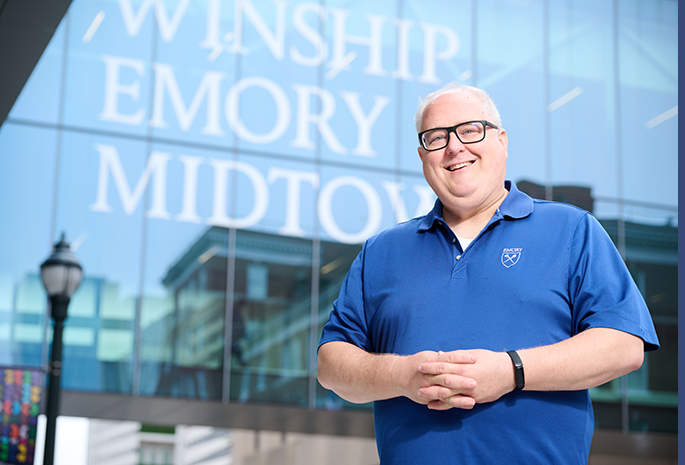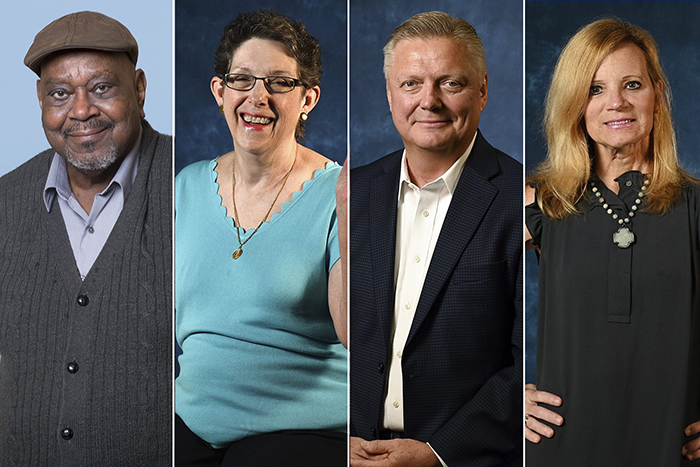For months, Johan dismissed the traces of red in his bowel movements.
“Because I traveled so much I didn’t know if it was because I was in India eating red curry food, or if I was in Mexico eating something with chili in it. I always made up an excuse why I was bleeding when I went to the bathroom,” he said.
Getting Answers
After he told his wife about it, she took him to an urgent care where they confirmed that it was not chili or curry, but blood.
“Then,” said Johan, “I got an appointment for a colonoscopy, and when I woke up my wife was sitting there, and the doctor came out and they told me that I had an almost three-inch tumor on my colon. It was an awful day. That’s how I found out that I had colon cancer.”
In their very first meeting, Johan’s doctor at Winship Cancer Institute of Emory University reassured him he would be okay.
“The fear changed colors from very, very dark to more of something I can manage,” said Johan.
“We discussed that his rectal cancer was in the early stages based on his imaging, and curable,” said Christina Wu, MD, Johan’s medical oncologist at Winship. “Treatment would entail surgery, chemotherapy and chemoradiation.”
Johan’s doctors at Winship told him they wanted to pursue a newer approach to treating his colorectal cancer. Instead of the traditional approach of chemoradiation followed by surgery, they would instead first treat the tumor with chemotherapy and chemoradiation, and then perform surgery only if necessary. There was a chance the tumor might even completely shrink away. Wu explained that this is the new standard based on recent clinical trials.
As it turned out, no surgery was needed because what started as a three-inch tumor on Johan’s colon disappeared without a trace.




